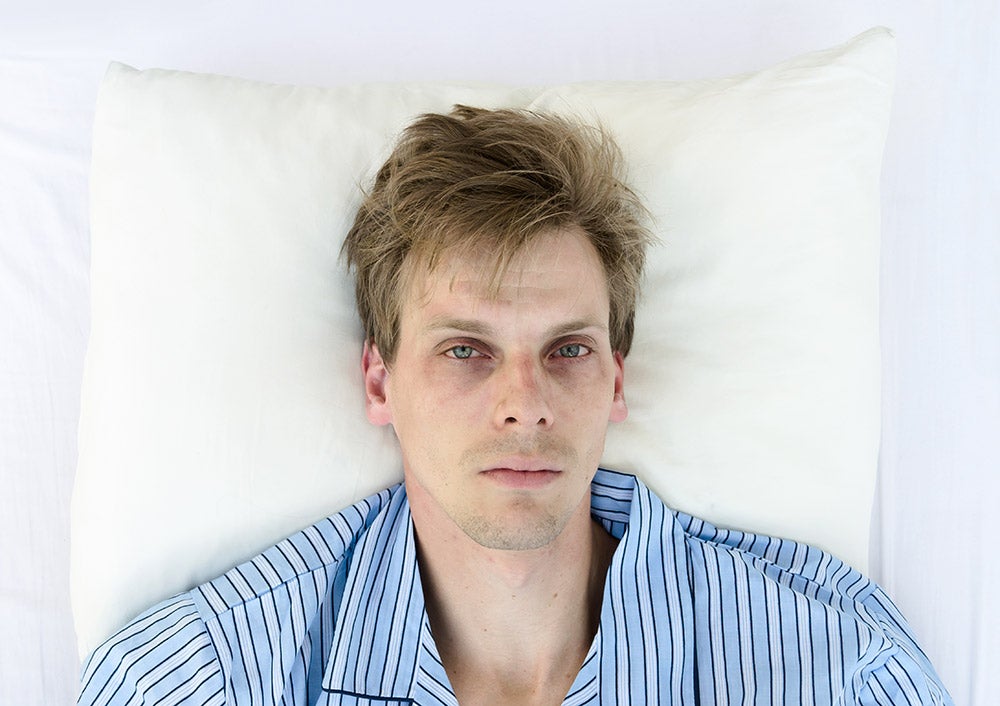Research has it that eating a diet high in fat can cause men to experience poor sleep, daytime sleepiness, sleep apnea, and lower energy levels.
The University of Adelaide conducted a study, monitoring the dietary habits of 1800 Australian men between the ages of 18-80 years for a year to link the relationship between fatty diets and sleep.
41% of the men reported daytime sleepiness, 47% were finding it hard to sleep at night, 54% had mild to moderate sleep apnea, and 25% reported moderate to severe sleep apnea.
In this article, you will learn about how fatty foods may cause poor sleep for men and what to do when you are suffering from poor sleep.
How Fatty Foods May Cause Poor Sleep for Men
There are various causes of poor sleep for men and eating fatty food is one of the many causes. The fatty food diet remains in your body when you don't burn it off by exercising and so an accumulation of this fat over time will affect your health and result in obesity which in turn can cause sleep apnea.
So What Is Sleep Apnea?
Sleep apnea is a sleeping disorder in which your breathing stops and starts repeatedly. This is more common in men and is highly dangerous.
Types of Sleep Apnea
There are three types of sleep apnea.
- Obstructive Sleep Apnea: This occurs when the muscles in the throat relax, leaving very little space for air to pass. When this happens, your breathing becomes forced and you can't get enough air, reducing the level of oxygen in your blood.
- Central Sleep Apnea: This happens when the brain's signal to the muscle that controls breathing is weak.
- Complex Sleep Apnea: This type occurs when a person has both obstructive and central sleep apnea.
A person who eats a diet high in fat is more likely to have sleep apnea than a person who eats a diet containing about 38% fiber.
Still wondering how? Fat stored in and around the throat reduces the size of the air pathway, making it difficult for you to unconsciously breathe properly when you are sleeping.
Most people don't know or just totally ignore the fact that there is a serious relationship between their diet and sleep patterns.
This means that what you eat is a huge determining factor of how much sleep you get. Consuming fatty foods have been confirmed to be harmful to the body in more ways than one.
Other Side Effects of Eating Fatty Foods
Low Energy Level
Fatty foods result in low energy levels. It is very easy to think that you can up your energy levels with foods that are high in carbohydrates or foods that are high in fats. This notion is wrong as fatty foods don't bring up energy levels, instead, they induce daytime sleepiness, which is a result of low energy levels.
Slow Cognitive Function
Sleeping problems caused by fatty foods such as daytime sleepiness can reduce the ability to think fast, alertness, and concentration of an affected person.
Lack of good Sleep
The more fatty foods you eat, the less likely you are to get a good night's sleep. Fatty foods could disturb your breathing while you sleep, causing you to wake up to normalize your breathing every time. This automatically reduces the number of hours you get to sleep.
Low Rapid Eye Movement
The less time spent sleeping, the less likely you are to have sufficient rapid eye movement (REM). The more REM you get, the more energized your body is the next day. Dreaming, which also enhances REM, helps to relax and replenish your body and you are deprived of this when you have a Low REM.
Poor Appetite
When your body is deprived of sleep, your choice of food and your appetite is affected which makes you overeat and also consume unhealthy foods. It also affects the way your brain thinks about food, making food out to be a positive reward, and at this point, your thoughts only revolve around foods that are likely to make you obese.
Poor Digestion Process
Your body wants different things - to sleep and to digest food. Digestion takes a long time, especially when you have eaten a lot of fatty foods. You can't digest food in time to get enough sleep, instead, you end up with heartburn.
Eating large fatty foods close to bedtime disrupts the digestion process and also increases the risk of acid reflux, which results in heartburn especially when the food is spicy or fatty. This disrupts your sleep pattern.
High body temperature
Consuming a lot of fatty foods can also disrupt your sleep by raising the body's temperature. This goes against the natural cooling process of your body that occurs when you sleep.
Irregular workings of the hormones
Sleep helps to regulate the hormones, of which leptin and ghrelin are a part. These hormones are associated with hunger and appetite. Leptin makes you know when your tank is full and ghrelin tells you when your tank is empty (when you're hungry). When you don't get enough sleep, ghrelin increases and leptin reduces, causing you to think you are hungry.
Obesity
This is the obvious result of consuming fatty foods. As earlier discussed, obesity can lead to insufficient sleep. It's a cycle you should avoid
How To Avoid Poor Sleep After Eating Fatty Foods
- Make sure you wait for at least 2-3 hours for the food to digest before going to bed
- Drink enough water to keep you hydrated
- Avoid carbonated drinks, caffeine, and alcohol.
- Perform light exercises like short slow walks or light stretches
Avoiding fatty foods helps you to avoid sleep problems. Eat healthy to sleep healthy today… and every other day.






















